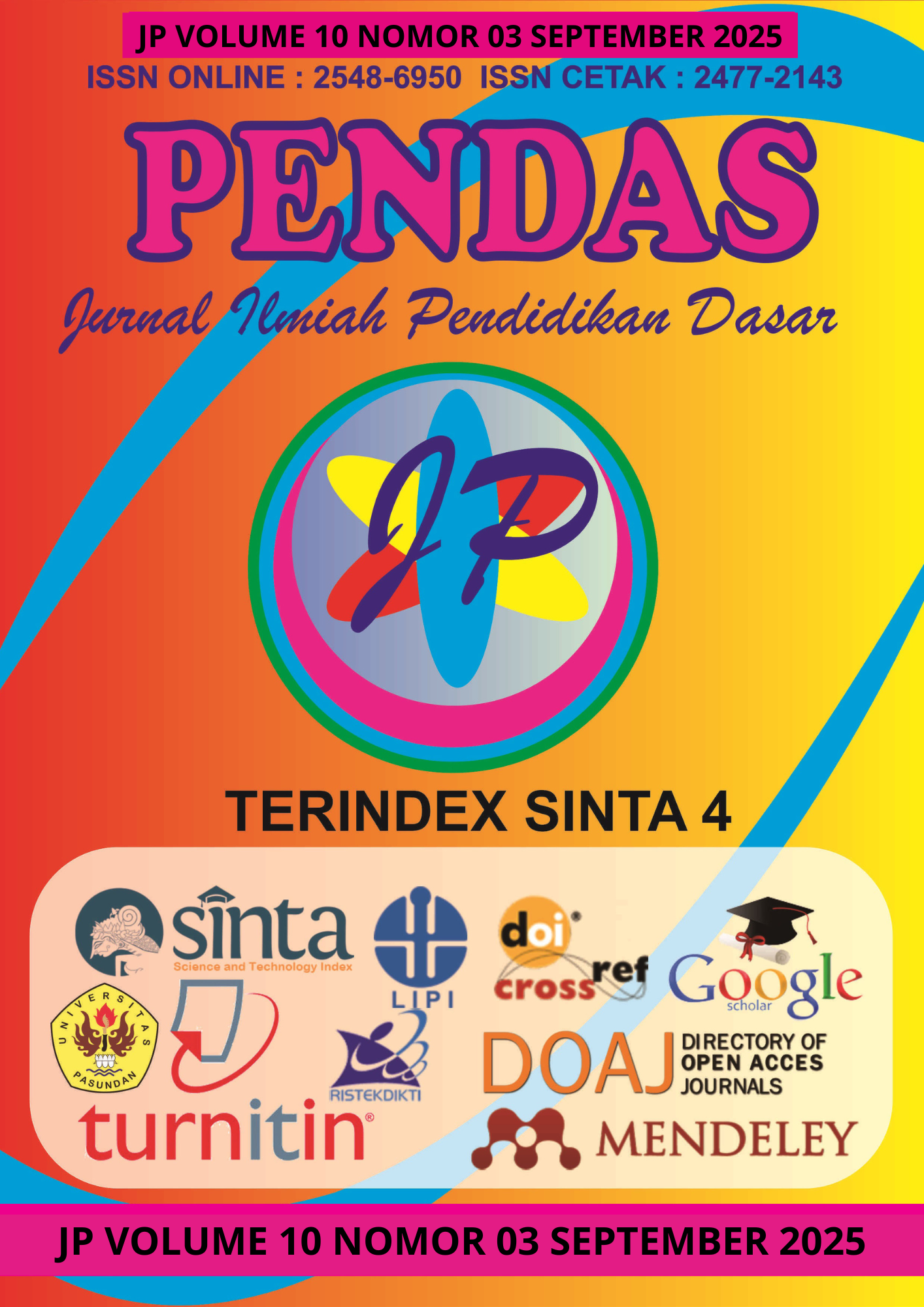PENGARUH MODEL PROJECT BASED LEARNING TERHADAP KEMAMPUAN BERHITUNG AWAL ANAK USIA 5-6 TAHUN DI TAMAN KANAK-KANAK SABBIHISMA 4 PADANG
DOI:
https://doi.org/10.23969/jp.v10i03.32056Keywords:
Early Childhood, Early Numeracy Skills, Project Based LearningAbstract
This study aimed to investigate the influence of the Project Based Learning model on the early numeracy skills of children aged 5–6 years at Sabbihisma 4 Kindergarten, Padang. Preliminary observations indicated that the children’s numeracy abilities were still underdeveloped, as shown by the difficulty some experienced in counting, sequencing, and writing numbers from 1 to 20. Adopting a quantitative approach, the research applied an experimental design in the form of a Quasi-Experiment. The study population included all children enrolled at Sabbihisma 4 Kindergarten, with the sample comprising 10 children each from classes B5 and B6. Data were obtained through testing and analyzed using normality, homogeneity, and hypothesis tests. Results revealed that in the experimental group, the mean pre-test score of 9.9 rose to 20.6 in the post-test, with a Sig. (2-tailed) value of 0.002, which is below the threshold of 0.05. These findings suggest that the use of the Project Based Learning model significantly improved early numeracy skills at Sabbihisma 4 Kindergarten, Padang.
Downloads
References
Ariani, L., & Zainil, M. (2020). Pengaruh Model Project Based Learning (PjBL) Terhadap Hasil Belajar Keliling Dan Luas Bangun Datar Kelas IV SD. E-Jurnal Inovasi Pembelajaran SD, 8(5), 110–117.
Azubuike, O. B., Browne, W. J., & Leckie, G. (2024). State and wealth inequalities in foundational literacy and numeracy skills of secondary school-aged children in Nigeria: A multilevel analysis. International Journal of Educational Development,110(August),103112.https://doi.org/10.1016/j.ijedudev.2024.103112
Conica, M., Nixon, E., & Quigley, J. (2023). Talk outside the box: Parents’ decontextualized language during preschool years relates to child numeracy and literacy skills in middle childhood. Journal of Experimental Child Psychology, 236, 105746. https://doi.org/10.1016/j.jecp.2023.105746
Delfia, E., & Mayar, F. (2019). Penanaman Konsep Berhitung Anak melalui Permainan Pencocokkan Kepingan Buah. Jurnal Obsesi: Jurnal Pendidikan Anak Usia Dini, 4(1), 350. https://doi.org/10.31004/obsesi.v4i1.350
Khadijah. (2016). Pengaruh Kognitif Anak Usia Dini. Medan: Perdana Publishing
Lestari, N. A. P., Kurniawati, K. L., Dewi, M. S. A., Hita, P. A. D., Astuti, N. M. I. P., & Fatmawan, A. R. (2023). Model-model Pembelajaran Untuk Kurikulum Merdeka di Era Socity 5.0 Lukluk: Nilacakra.
Munda, N., Endrinal, J. R., & Nequinto, M. (2024). Effectiveness of project COUNTS in improving students’ numeracy skills. International Journal of Science, Technology, Engineering and Mathematics, 4(1), 22–41. https://doi.org/10.53378/353038
Piaget, & Barbel. (2010). Psikologi Anak. (Alih Bahasa: Miftahul Jannah). Yogyakarta: Pustaka Pelajar.
Sufa,F,F. (2022). Konsep Matematika Untuk Anak Usia Dini. UNISRI Press.
Sudirman, N. (2021). Modul Karakterstik dan Potensi Anak Usia Dini. Badung: Nilacakra
Utoyo, Setiyo. (2017). Metode Pengembangan Matematika Anak Usia Dini.Gorontalo: Ideas Publishing.
Yaswinda. (2019). Model Pembelajaran Sains Berbasis Multisensori Ekologi (PSB MUGI) Bagi Anak Usia Dini. Edu Publisher
Downloads
Published
Issue
Section
License
Copyright (c) 2025 Pendas : Jurnal Ilmiah Pendidikan Dasar

This work is licensed under a Creative Commons Attribution 4.0 International License.



















